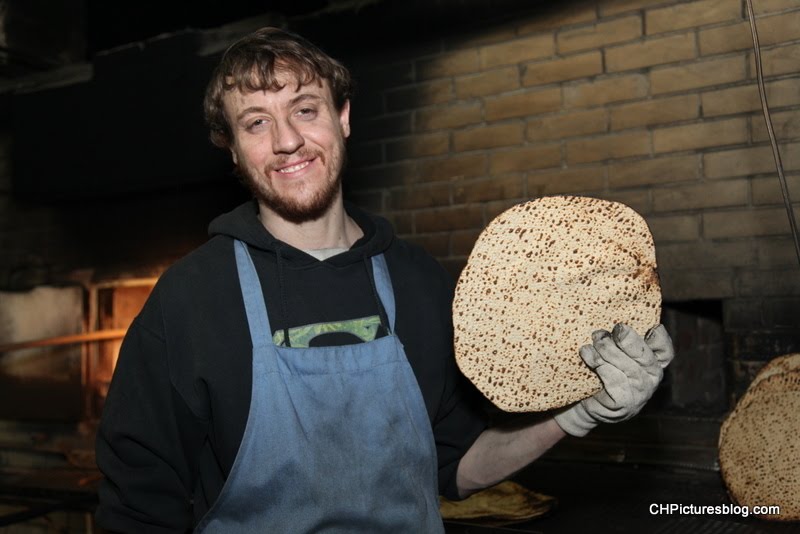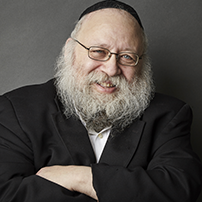
SETTING THE TONE
The fourth—yet still preliminary—step is the breaking of the middle Matzah.
We break the Matzah at this point because it sets the tone for the rest of the Seder. The Haggadah will be recited not as a story of old, but as an experience that we will relive in the here and now.
To make that experience real it is necessary to have a broken Matzah before our eyes. Matzah in general is described as the “bread of affliction.” Breaking it and leaving the smaller piece in front of us at the Seder, helps us appreciate and empathize with the suffering of our ancestors in Egypt.
WHY DO WE BREAK THE MIDDLE MATZAH?
The three stacked Matzot correspond to the three types of Jews: Kohanim, Levi’im and Yisraelim. We break the middle Matzah—the Levi—because the Levi represents the Divine attribute of judgment, which is associated with the act of division.
HUMILITY
In addition, the Matzah is known to be a symbol of humility because it is not allowed to rise. As explained elsewhere, humility is most crucial during Passover (one reason there is such a strict abhorrence of chametz, where flour and water have been allowed to rise; the symbol of an inflated ego).
In the context of the Seder, we can also understand why humility is so important. To empathize with others, one cannot be narcissistic and self-centered. Having the broken Matzah in our presence, with its clear message of humility, helps us feel their pain and imagine ourselves as if we too had just left Egypt.
But it is not sufficient to have the Matzah inculcate in us the spirit of humility and empathy.
Humility is not just about the absence of an inflated ego. It is also about recognizing that all we have is half a Matzah.
POOR AND RICH SIMULTANEOUSLY
The Talmud refers to Matzah as the “Bread of affliction,” but that description is sometime recast as the “poor man’s bread” because a poor person has only a piece of Matzah to eat.
Here is one more Passover paradox: recitation of the Haggadah with a broken piece of Matzah before us is designed to make us feel poor. Yet our reclining to drink the four cups of wine and eat the Matzah is an expression of freedom and wealth. We left Egypt endowed with great wealth that we recognize on this night even as we express our empathy and identify with the poor.
We are inherently poor even as we are the richest people on earth.
There are multiple lessons in this realization that we are poor.
In addition to the obvious, that it enhances our ability to empathize with the impoverished slaves in Egypt, this realization of our fundamental poverty also carries with it the humbling message that no matter how much we know, there is much more that we do not know.
Recall that by keeping the smaller piece of Matzah at the Seder, we are leaving the larger piece—the Afikomen—for the end. The lesson this teaches us is that while we are poor now poor in the sense that we have but scant knowledge (as the Talmud says, “There is no one poor except one who is poor in knowledge) we know that a spectacular richness of knowledge will be revealed in the future Messianic Age.
Even as we reflect on and relive the past suffering and impoverishment, we can look confidently to the future for the total transformation of that poverty into wealth.
IMPOVERISHED BUT NOT DEPRESSED
To be crushed and humbled can cause depression and take away our drive to get out of exile. It is essential, therefore, that our humility be connected to a profound sense of purposefulness and optimism. This is achieved by breaking the middle Matzah (our humility) and saving the larger piece to savor at the Seder’s conclusion (symbolizing our bright optimism for the future).
The knowledge that marvelous things await us will further whet our appetite for greater efforts to get out of exile. Our overarching goal is to be able to enter the Messianic Age, when all the fountains of knowledge will be fully revealed. The first step on our journey to reach that milestone begins with the Seder experience of the Exodus from Egypt.


